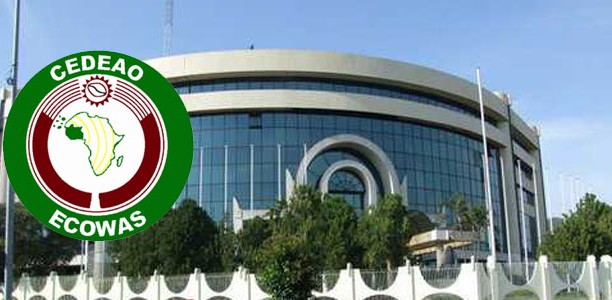The Economic Community of West African States (ECOWAS) known in French as Communauté économique des États de l'Afrique de l'Ouest, (CEDEAO) is a sub regional grouping of fifteen West African states. Member states include Benin, Burkina Faso, Cape Verde, Gambia, Ghana, Guinea, Guinea-Bissau, Ivory Coast, Liberia, Mali, Niger, Nigeria, Senegal, Sierra Leone and Togo. According to Wikipedia lastly modified on 5 August 2013, Cape Verde joined ECOWAS in 1976, and in December 2000 Mauritania withdrew, having announced its intention to do so in December 1999.
ECOWAS was created on 28 May 1975, with the signing of the Treaty of Lagos. Its mission is to promote and facilitate economic integration across the sub region. ECOWAS which makes use of three official languages, French, English, and Portuguese, also plays an important role in peace keeping operations.
Being a very important pillar of the African Economic Community, ECOWAS was created in order to make its member states economically and financially self sufficient especially with the creation of a single large trading bloc. Despite such intentions the sub regional grouping seems not to have met these intentions.
ECOWAS is made up of two institutions to assist it in policy implementation -the ECOWAS Bank for Investment and Development, formerly called the Fund for Cooperation until it was renamed in 2001 and the ECOWAS Commission.
Some members of ECOWAS have organised meetings in a bid to strengthen the sub regional grouping. The 44th meeting for governors of the central banks of member states of ECOWAS took place on Friday the 26 July 2013 in Accra Ghana. During this meeting, several issues including the need for a common currency zone of the Economic Community for West African States were discussed upon by Head of states of these member states.
In line with an article published on Éclair d’Afrique.com dated the 12 August 2013, Mr. Tiémoko Meyliet Koné governor of the Central Bank of West African states who presided over this reunion acknowledged the lack of macro economic momentum which exists between member states of ECOWAS and the need to have a unique monetary zone to bridge this gap. He remarked that a lack of a single currency makes it difficult for member states to effectively monitor their economic progress in the sub region.
In the ECOWAS sub region, various currencies are in use creating a sub region plagued by an unstable currency cacophony. In Ghana the cedi is utilised, in Nigeria the Naira is in use, the Leone is used in Sierra Leone, the dalasi used in the Gambia, the Liberian Dollar in Liberia, the Escudo in Cape Verde and the franc guinéen in Guinea.
It is indeed a wonderful idea to converge in a bid to have a single currency for the sub region. Having various currencies in the sub region is indeed an impediment to sub regional integration and economic growth. A single currency for ECOWAS states as well as a reduction in trade barriers will go a long way in boosting the economies of member states and the sub region as a whole. All the same there remain concerns as to such a dream attaining fruition. France which still has a strong grip on some of the member states in Africa and especially in this sub region has always decided on the economic and financial atmosphere of some of these states and thus benefits enormously from the cacophony that exist in the sub region. With this state of affairs it may be a daunting task for ECOWAS top executives to make such a move as to having a single currency. Despite such concerns it is time for ECOWAS to take the bold step and create a single currency so as to propel the sub region forward. Such moves may revamp the economies of member states, the sub region and catapult the continent towards a quicker renaissance.
Chofor Che is an integral part of the Africanliberty’s Voice of Liberty initiative. He is also a Doctoral Law candidate at the Faculty of Law, University of the Western Cape and blogs at http://choforche.wordpress.com/
[Photo: ECOWAS House, Abuja, Nigeria | credit: Sun Newspaper]



